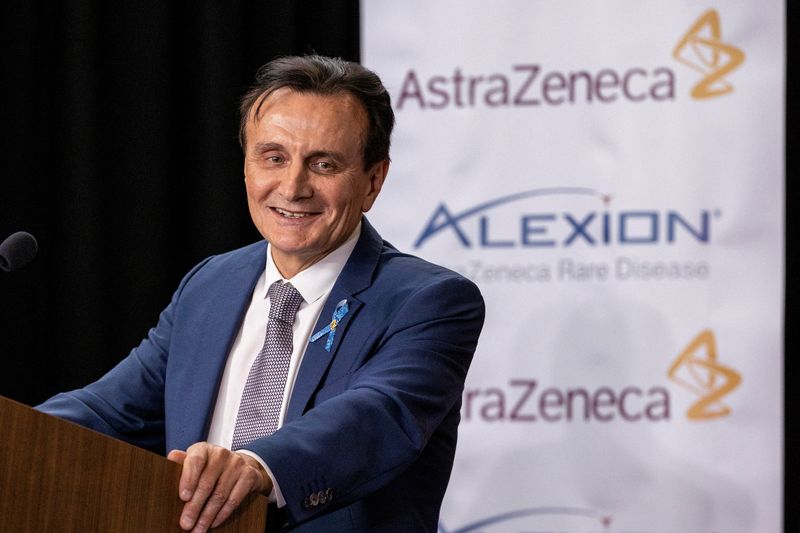(Reuters) -AstraZeneca shareholders on Thursday approved a 2024 pay policy which will boost CEO Pascal Soriot's remuneration to as much as 18.9 million pounds ($23.7 million) this year, but over a third of investors revolted against the huge sum.
High executive pay in Britain has long been contentious, particularly with pay for ordinary workers rising far more slowly, and Soriot's pay package has proved a lightning rod for investor discontent in the past.
In 2021 — the last time AstraZeneca (NASDAQ:AZN)'s long-term incentives policy was reviewed — almost 40% of votes were cast against it, and proxy advisory groups Glass Lewis and ISS also opposed the plan, as they did this year.
Of the 1.18 billion total votes cast on Thursday, 64.43% were in favour and 35.57% were against the resolution that will take Soriot's maximum annual bonus for 2024 to three times his base salary, and make him eligible for long-term performance-based share awards worth as much as 8.5 times his salary.
Soriot was handed 16.9 million pounds last year after hitting most long-term targets.
Despite the notable no votes, the final result is a major boost to one of the best-paid executives among London's blue-chip FTSE 100 at a time when British firms are looking to match U.S. and European rivals' pay packages.
AstraZeneca has defended the pay policy, saying the changes are necessary to increase competitiveness against its European peers and recognise leadership's critical role in achieving its long-term targets.
Since taking the helm in 2012, Soriot has transformed AstraZeneca into the UK's second-most-valuable listed company after Shell (LON:SHEL).
Earlier on Thursday, the drugmaker announced a 7% hike to 2024 dividend payouts, betting on a strong performance and cash generation from its blockbuster drugs and several recent acquisitions.

Its shares have outpaced rival GSK's and the broader pharma index in recent years. Shares have risen 85% since Jan. 1 2019, compared with GSK's 8% rise.
($1 = 0.7973 pounds)